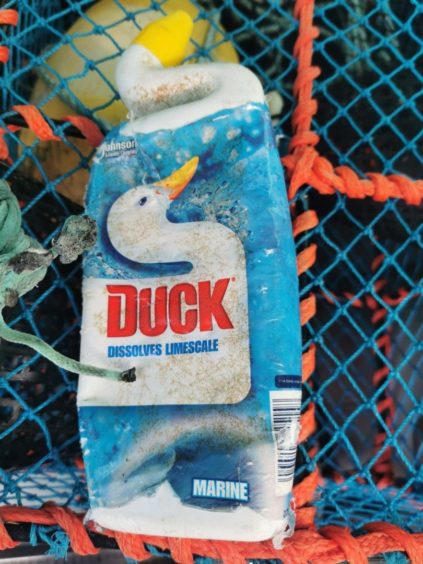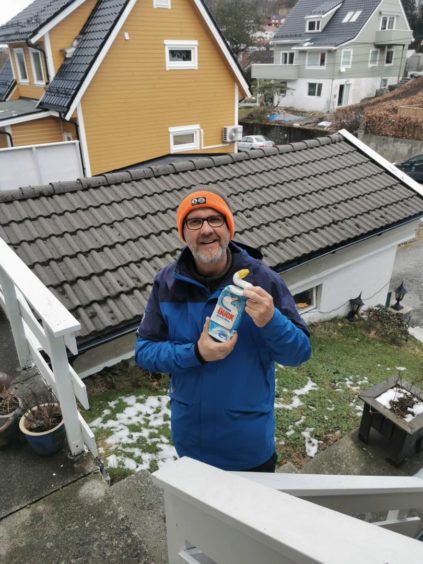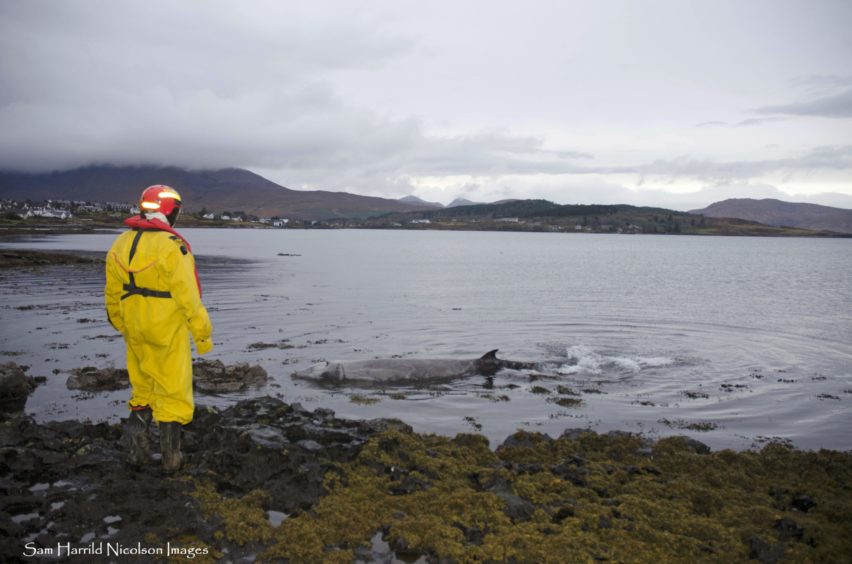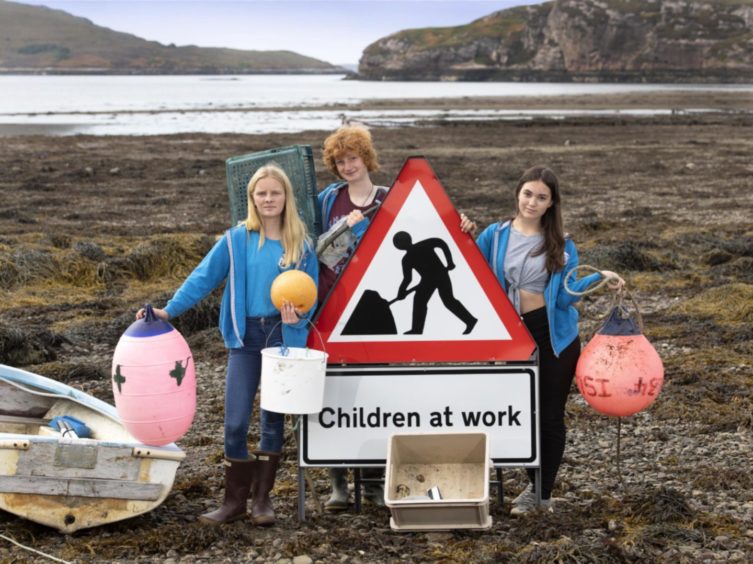A migrating “duck” has caused concerns amongst an Ullapool environmental group.
The Ullapool Sea Savers found out about a half-full Duck cleaning fluid bottle that washed up on a beach near Bergen, Norway.
They have assumed it has come all the way from Scotland, but it is definitely of British origin due to lettering on the bottle.
It was found by a friend of the group and Norwegian documentary maker Kenneth Bruvik, who thinks the discovery of the bottle can become a symbol for the need to stop plastic pollution now.
‘Plastic has no borders’
He said: “This duck is a very good picture of how plastic can travel across the world and is a problem we must work together to solve.
“Plastic has no borders, we need to work across borders to stop plastic ending up in our eco-system.
“It is like it has migrated here illegally, and is not the sort of duck we want to wash up on our shores.
“We need to work together to stop our children and grandchildren from becoming drowned in plastic.
“There is a simple solution, and everyone in the world must help to stop polluting our seas.”
The Plastic Whale
Mr Bruvik is good friends with Ullapool Sea Savers environmental adviser Noel Hawkins.
The Sea Savers are a group of enthusiastic children and teenagers from the Wester Ross town who do regular beach cleans and raise awareness about the dangers of polluting our seas and beaches.
Mr Bruvik has been involved in a number of documentaries in his native Norway, including one called the Plastic Whale, which was shown on Sky News.
It is about a beaked whale which ashore near Bergen with over 30 pieces of plastic in it, including Ukrainian chicken packaging, a Danish ice-cream wrapper, and a British crisp bag.
Next, Mr Bruvik wants to visit Ullapool and Skye in autumn for a new series, depending on the Covid pandemic.
He wants to explore the case of the whale that washed up in Skye that was killed by swallowing 4kg of plastic bags in 2015.
The mammal was put to sleep on welfare grounds after it got into difficulty near Broadford in December that year.
Mr Bruvik led a mass beach clean in Bergen in 2018, when more than 100 people from around the world attended, inspired by the Sky News documentary.
He added: “I want to come to Scotland and meet my friends in Ullapool, the kids are very important in this fight as they are the next generation.
“We must make this a cleaner place for our children and grandchildren.
“Sea pollution is bad for the environment, it affects all sea life, fish, birds, and seals.
“The best way to do this is by talking to people, tell them how they can help and get the word out there.”
Mr Bruvik aims to bring back the half-empty Duck bottle to Scotland if here comes here.
Ullapool Sea Savers
Ullapool Sea Savers combat sea pollution through regular beach cleans and taking advantage of schemes like Fishing for Litter, which has boats pick up any rubbish they see and take it back to shore.
Advisor Noel Hawkins described the situation on north beaches, with “95%” of the rubbish that washes up being from fishing vessels and other boats.
He said: “We do our best, but we need a more joined-up effort from around the world.
“It doesn’t matter if Scotland is perfect at this, as pollution will still come in from the rest of the world.
“With Cop26 coming to Glasgow later this year, it’s a great opportunity for solutions to be thought of, as it needs to be done right now, rather than 20 or 40 years down the line.
“The kids in the group came together as they saw the impact pollution was having on our beaches up here and want to help with that.”
Mr Hawkins revealed that broken fishing equipment was the item that mostly washed up, with parts of nets seen regularly.
As for the most unusual thing they have found, it was cans of mackerel lost from Russian fishing boat back in the 1980s.
He added: “One of the kids picked up a can with the best before date of 1983, and it still had mackerel in it.
“I told him not to open it as the smell would have been explosive.
“Crisp packets we find often have long-gone best before dates, and some even pre-date the kids who find them.
“All these items are still largely intact, which shows how rubbish does not break down.”
To find out more about the Ullapool Sea Savers, visit their website.



